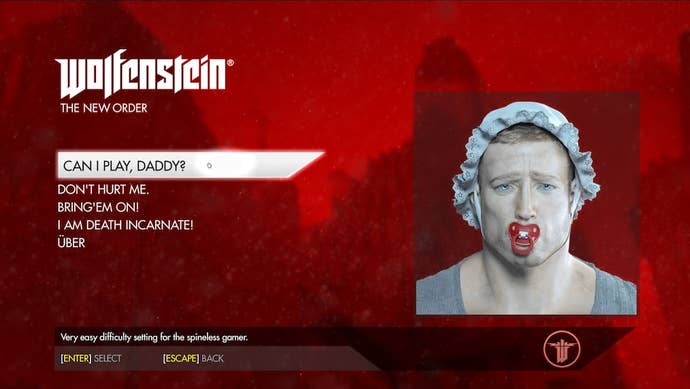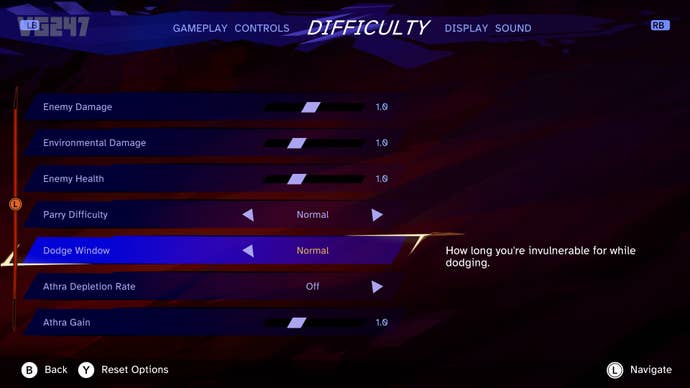Products You May Like
With Prince of Persia: The Lost Crown, Ubisoft has deftly proved two things that many capital-G Gamers are vocally skeptical about. Firstly, that Ubisoft itself is a powerhouse of creative talent, and not just a bloatware shop. Yes, the publisher has become synonymous with “long”, “bland”, “formulaic”, and other disdainful adjectives. Its flagship Assassin’s Creed franchise, itself arguably a spin–off of Prince of Persia, has seen the games grown to frankly unmanageable proportions, boasting multiple hundreds of hours of gameplay padded out by excessive icon janitoring and copy/pasted environments. However, it seems as though Ubi is serious about righting the ship, and ditching the stifling mandate of content for content’s sake. The Lost Crown is only as long as it needs to be, and is an extremely lovingly designed game to boot.
The second thing Ubisoft has proved is that it is possible to cater adequately to hardcore players who relish a challenge, and the rest of us mere mortals who are time poor, possibly arthritic, and extremely not in the market for having content blocked off by skill filters.
Check the video below to get an idea of how Prince of Persia is catering to all kinds of player, no matter their ability:
There’s an old Dara Ó Briain routine about video games being the only art form that denies access to content based on ability, and the comparative absurdity of a book slamming shut because you can’t adequately describe its themes is as spot on and relevant now as it always was. But things are changing rapidly: more and more games are shipping with story modes, platforming assistance, and even toggles for skipping entire sections if they prove too taxing.
Much of the audience, I suspect mostly ones who are still young enough to not be concerned with the fact that they are a declining organism, considers this a form of coddling that lets too many casuals off the hook. There is, I think, a compelling argument that if a game designer’s creative vision is one built around skill challenges, trial and error, and learning from failure or its consequences, then it’s perfectly justified to simply not cater for less capable players. But it becomes problematic where difficulty tiers cross over with accessibility concerns, and frankly, I think we are as an audience generally pretty inconsistent about letting artists be artists, so while it is a compelling argument it is often invoked disingenuously.
Regardless, and at the risk of making Compound Inadequacy my USP on this website, I’m really impressed with the new Prince of Persia’s difficulty and accessibility options. There’s a suite of tweaks and toggles here that really let you curate the experience to your exact comfort levels. It’s important for player satisfaction to not remove the challenge completely: everyone wants to feel like they have, in fact, overcome the odds.
Everyone’s different aside from the fact that none of us are getting younger. Like I said in a recent piece about gaming with hearing loss: as millennials creep toward their fifties and begin to enjoy their time as The Default Consumer, making sure that gaming is inclusive and not just an angry wee boy’s club becomes less of a PR issue and more of a bottom-line one.
Which is, I think, why we’re seeing stuff like this getting rolled into the general push for better accessibility even though it almost certainly increases costs. The more permutations of the player experience there are, the more playtesting is required to make sure that, to use an extremely hypothetical example, nobody’s save gets wiped if they accidentally play Ain’t No Doubt by Jimmy Nail into their Dualsense mic while they’ve got incoming damage set to two thirds (I obviously completely made this up, but it might be worth deleting him from your Spotify just in case).
Though I’d always stop short of advocating that every game should have a Fisher Price mode, I’m glad to see this trend of inclusive, extensive, granular levels of challenge becoming the norm. Rigid easy/normal/hard modes are archaic, and so is punishing the player for preferring a less intense experience – by withholding achievements from them, for example. Or just outright insulting them like in the 90s, which at least had the virtue of being funny.

Times are changing. A load of big shifts are happening at once. We’re seeing it especially in marketing: games are now boasting about how little bloat they contain. How their maps are as big as they need to be, and not disconcertingly enormous. How that oppressive “hours of gameplay” statistic, once touted proudly with ever larger numbers attached to it, is now being employed to reassure the time-poor that they will actually have a small chance in hell of completing this thing before the sequel drops, and possibly without having to ignore their kids.
Ah well. You can’t have everything.
